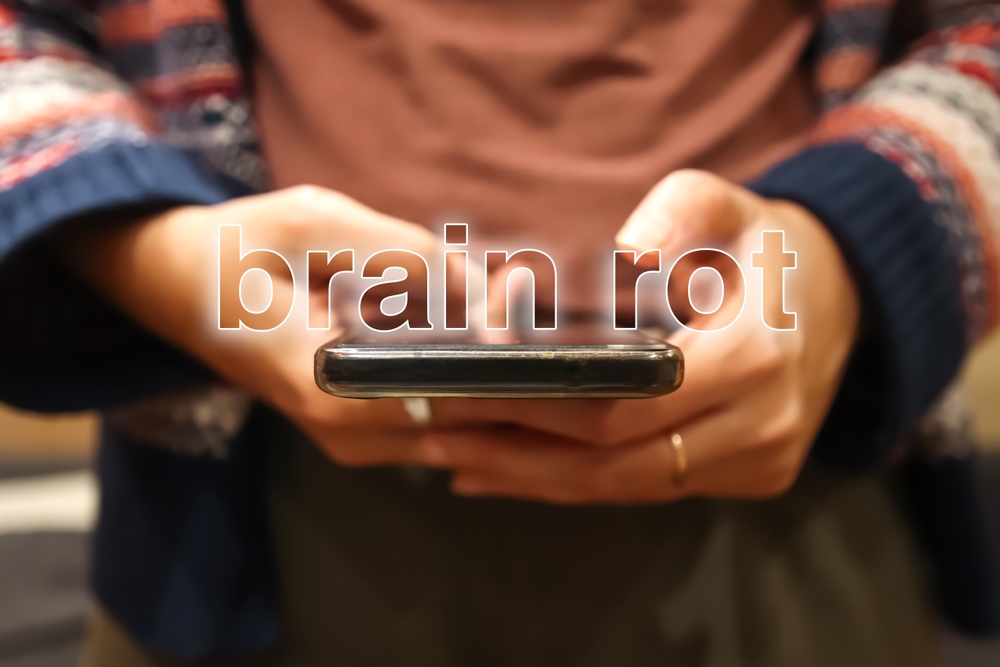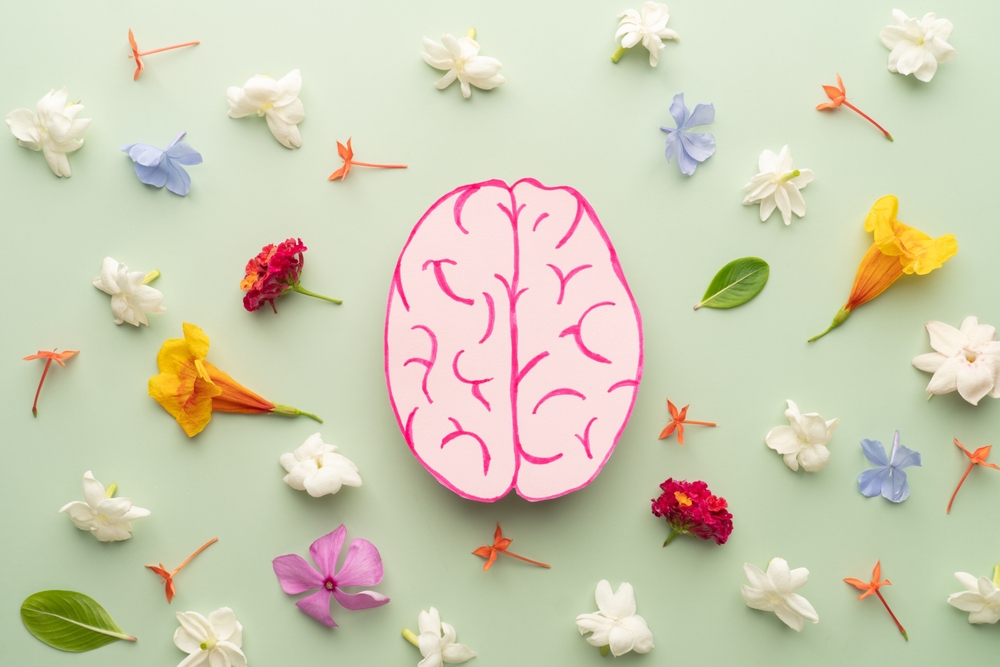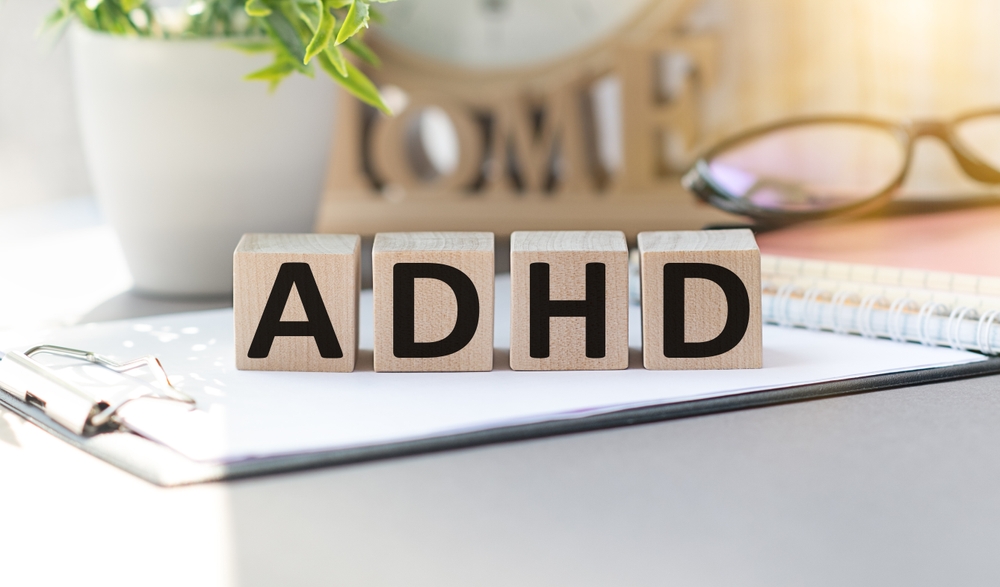Social media can be a wonderful thing, but it also has its dangers and limitations, especially for neurodivergent people, such as those with ADHD. TikTok brain rot ADHD is a growing concern in today’s world, and the consumption of short-form content in general may be becoming problematic for many people around the world due to its impact on the brain.
While it’s important to note that no social media is inherently bad for someone, it is crucial to be aware of the impact that it can have on people—particularly young people with ADHD. Here, we will explore what you need to know about brain rot, how TikTok can impact it, and what you can do to help with managing screen time.
What Does ‘Brain Rot’ Really Mean?

Brain rot is an informal term that refers to the cognitive decline and mental exhaustion that could be the result of excessive screen time, but it can also be used to mean online content that is low quality, which contributes to concentration difficulty, memory loss, difficulty making decisions, and more.
How Does TikTok’s Fast-Paced Content Affect the Brain?
While ‘brain rot’ is not a scientific term, what it is associated with (shorter attention spans, difficulty concentrating, etc), is true, with more evidence coming out to suggest that past-paced and short-form content negatively impacts these areas of brain function. When these issues are related to academic work, for example, we are likely to see the inability to remain focused on tasks that need extended levels of attention, and are more likely to get distracted.
Although TikTok does not ‘cause’ brain rot as there is no scientific evidence to support this theory, TikTok brain rot ADHD is a rising question in today’s world, and studies are being conducted to look into the relationship between apps such as TikTok and their impact on the brain. Hopefully in the near future, there will be more to discuss, but there is enough to suggest that there is an impact on the brain.
ADHD and Dopamine: Why is Short-Form Content So Addictive?

TikTok’s fast-paced content impacts the brain by constantly providing hits of dopamine, which is the brain’s feel-good chemical. This reinforces the behaviour (watching TikTok videos) by rewarding it, which then makes us go on to continue doing it because it makes us feel good, and we get stuck in a cycle of consuming online and social media content.
What Are the Signs of Digital Overstimulation in Children with ADHD?
There are many signs to look out for regarding digital overstimulation and even doomscrolling in children with ADHD, including restlessness, increased anxiety or stress, sleep issues, irritability, emotional outbursts, and more. While there are many signs to be aware of, it is key to understand that everyone is different, and the signs that one person exhibits may be different to those that another person does.
Key signs of digital overstimulation in children with ADHD include:
- Increased anxiety or stress
- Restlessness
- Sleep issues
- Emotional outbursts
- Irritability
- Difficulty focusing
- Increased inattentive behaviours
Is TikTok Making ADHD Symptoms Worse?
The relationship between TikTok brain rot ADHD and symptoms required more research, but there is evidence to suggest that TikTok can make ADHD symptoms worse due to the constant dopamine hits that reinforce the compulsive scrolling behaviours.
In particular, issues relating to impulsivity, hyperactivity, and inattention can easily be made worse by apps like TikTok due to the short-form content that offers stimulation and dopamine. As such, it is crucial that you are not only aware of the dangers of this app and others like it, but also understand how to combat these issues for your own good.
What About Using TikTok to Self-Diagnose ADHD?
TikTok is fantastic for raising awareness of things like ASD, ADHD, and more, and it is an excellent tool for helping to reduce stigma surrounding neurodivergence, mental health, and many other aspects of life. However, because of the nature of TikTok and the algorithm, it is important to note that there is a lot of misleading and incorrect information on the app that can result in inaccurate self-diagnoses, harmful behaviours, and potentially making pre-existing ADHD behaviours and symptoms worse.
Although being self-aware is crucial, and it can help you throughout life, we need to remember that self-diagnosing is not a good way to move forward and get help, if you need it. Rather, if you suspect that you may have ADHD, it is recommended to seek the help and advice of professionals and get a formal diagnosis so that you can get the help that you need.
Tips for Managing Screen Time and Reducing TikTok’s Impact

There are some fantastic strategies that you can implement in your life to help you with managing screen time and reducing TikTok’s impact on your day-to-day life, and many of them are easier than you may think. From enforcing localisation, considering your feelings (mental and physical), and being conscious about what you do, you can help yourself build better and healthier digital habits.
If you struggle with controlling compulsion, or don’t trust yourself to do these things from the get-go, you can download apps that block access to social media for a set period of time as well. For example, Freedom, AppBlock, StayFocused, and more can help you and your child to limit screen time by blocking access to certain apps or even turning the internet access off for a set duration.
Keep Phone Checking and Scrolling Localised to Avoid Overuse
Being able to localise your phone-checking behaviours is crucial to learning how to manage screen time and reduce TikTok’s impact on your brain, mental health, and overall life. When you localise a behaviour, you effectively limit your ability to carry out that behaviour at a set time, place, or both.
This could mean that you only permit yourself to check TikTok for 15 minutes at lunchtime, and 10 minutes around dinner, or whatever else works for you. Maybe you can only check social media when you go on a timed bathroom break, when you walk on the treadmill, or something else that works for you.
Take a Moment to Consider How You Are Feeling
Noticing how you feel—both mentally and physically—is so important when it comes to digital health. You should be aware of what your shoulders feel like, your breathing, your pulse, and what feelings are going on inside. If your heart is racing, your breaths are fast, or you are starting to feel negative emotions, you should put the phone away and take a break from social media.
Look out for the following signs that suggest that you should put the phone down:
- Stiff neck
- Racing heart
- Stinging eyes
- Fast breathing
- Tense shoulders
- Feelings of dread
- Feelings of anxiety
- Feelings of sadness
Conscious Checking, Not Compulsive
TikTok brain rot ADHD can lead to compulsive phone-checking behaviours, where you seem to just ‘do it’ rather than actually decide to do it. You may actually be surprised by how often you subconsciously reach for your phone without thinking about it, and without a good reason as to why you are doing it. You simply pick it up, tap on social media, and start scrolling.
When you notice yourself doing this, stop and question it. Stop the behaviour in its tracks, put your phone down, and set healthy boundaries with yourself and your use of screen time. As Dr. Albers has said, “the power of imagination can help curb your thinking”, so imagine a red stop sign to get you on the right track.
How The Brain Workshop Supports Children with ADHD in the Digital Age

Concerned about TikTok brain rot ADHD and worried about how TikTok is affecting your child’s brain health? Contact The Brain Workshop to learn how we help children with ADHD improve focus, reduce overstimulation, and thrive in a digital world.
If you would like to learn more or get tested for ADHD, please don’t hesitate to learn more about us at the Brain Workshop, meet our team, check out events, or even read our FAQ. Or, find out about the impact that Ramadan has on your brain, how to stay productive in school during the holy month, and how to manage exams during this time.






